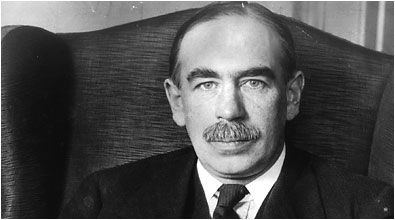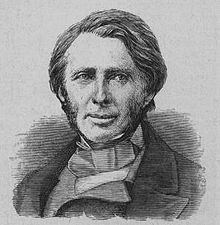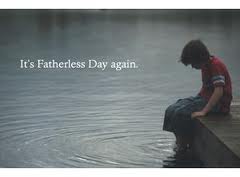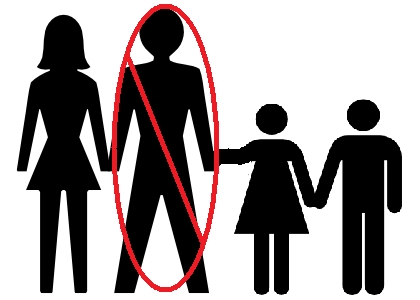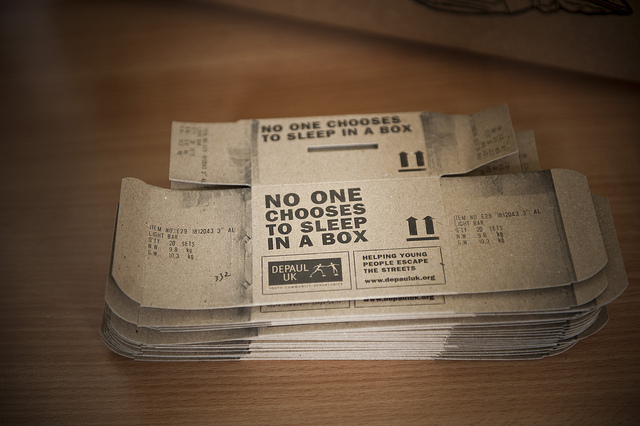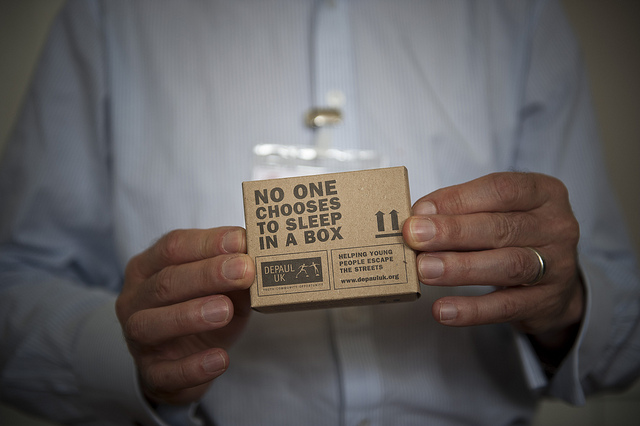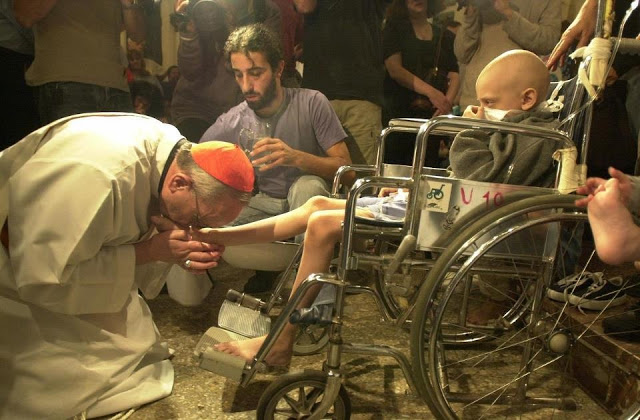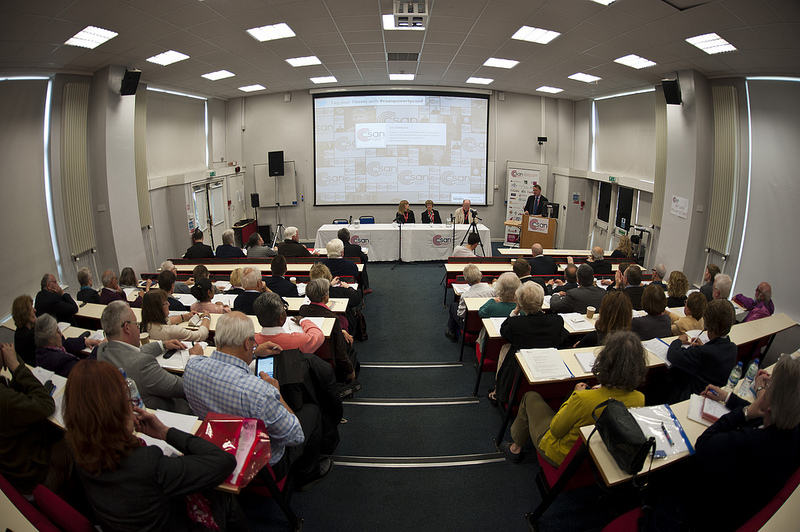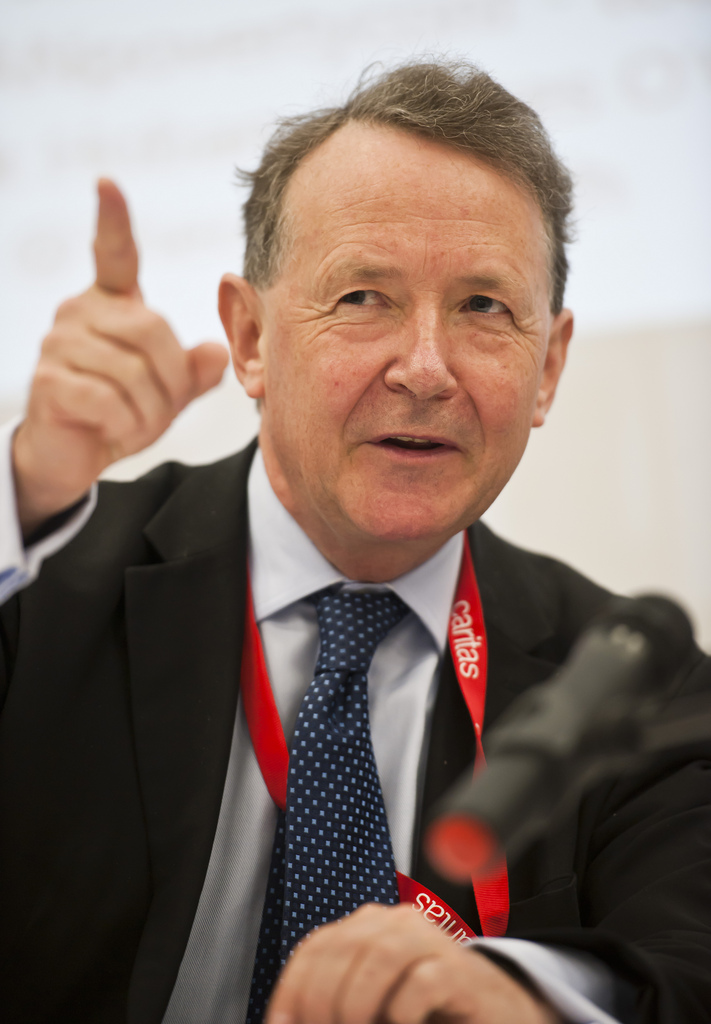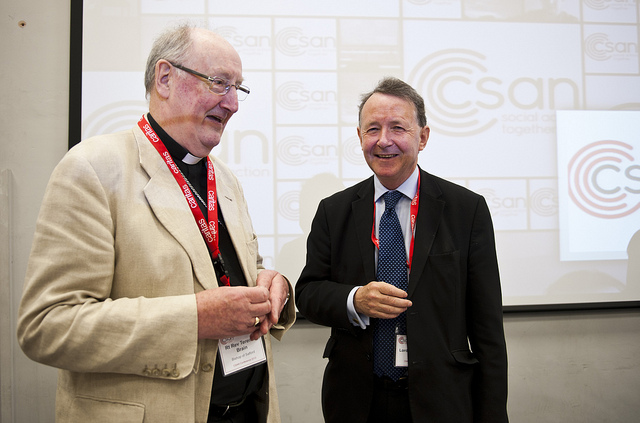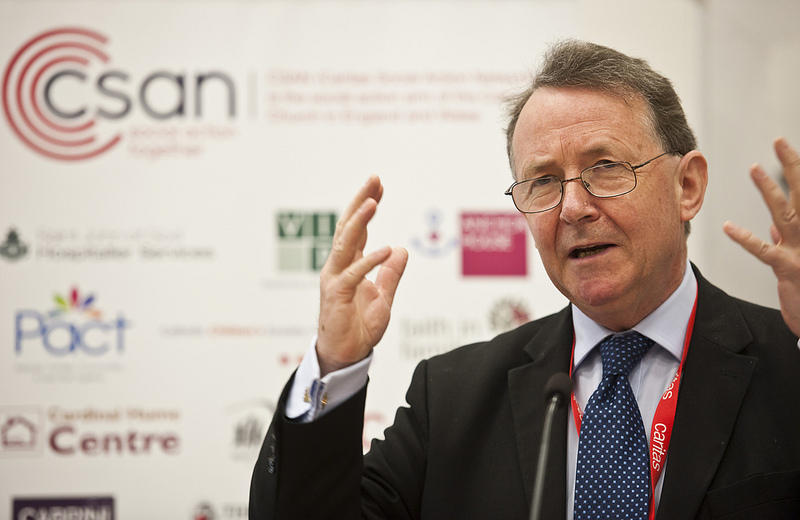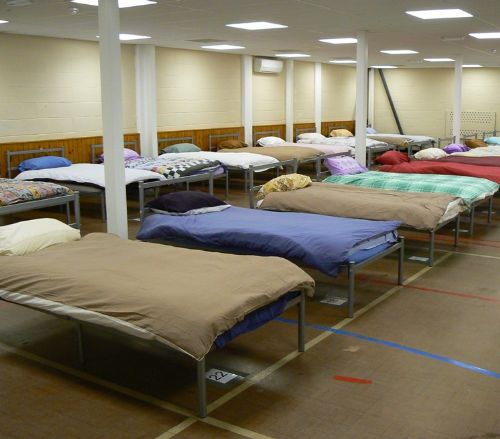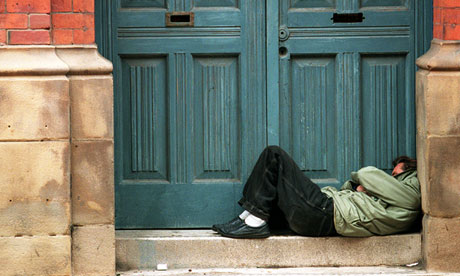Interview on the Increasing Poverty Gap In Britain:
www.premier.org.uk/hearttoheart
See also Archbishop Vincent Nichols:
<a href=”http://www.indcatholicnews.com/news.php?viewStory=22745“>
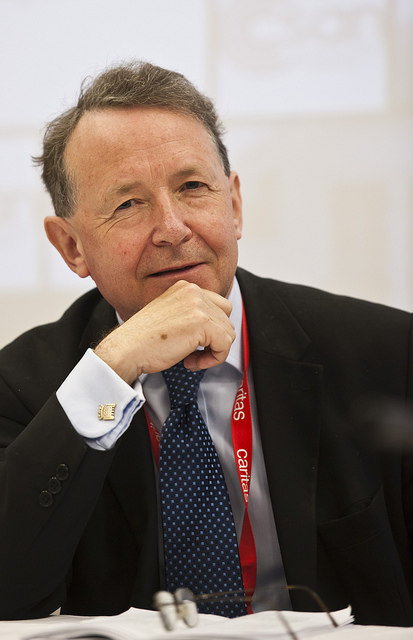
CSAN Conference, London Keynote Speech, 12 June 2013
David Alton: Britain Should Mind The Gap
Extract: “We may live in the world’s fifth richest country but because we fail to mind the gap most people have little or no experience of the wealth which that implies. Instead, too many people’s experience of the fifth richest country in the world is of Food Bank Britain, Sharp Elbowed Britain, Rip-Off Britain and Devil Take The Hindmost Britain. We have seen the emergence of a new class of people who are outside society: workless, broken, lost to ambition and social improvement and with no stake in society. When you ask the question “who owns Britain?” it’s not the people who have fallen through the gap.””

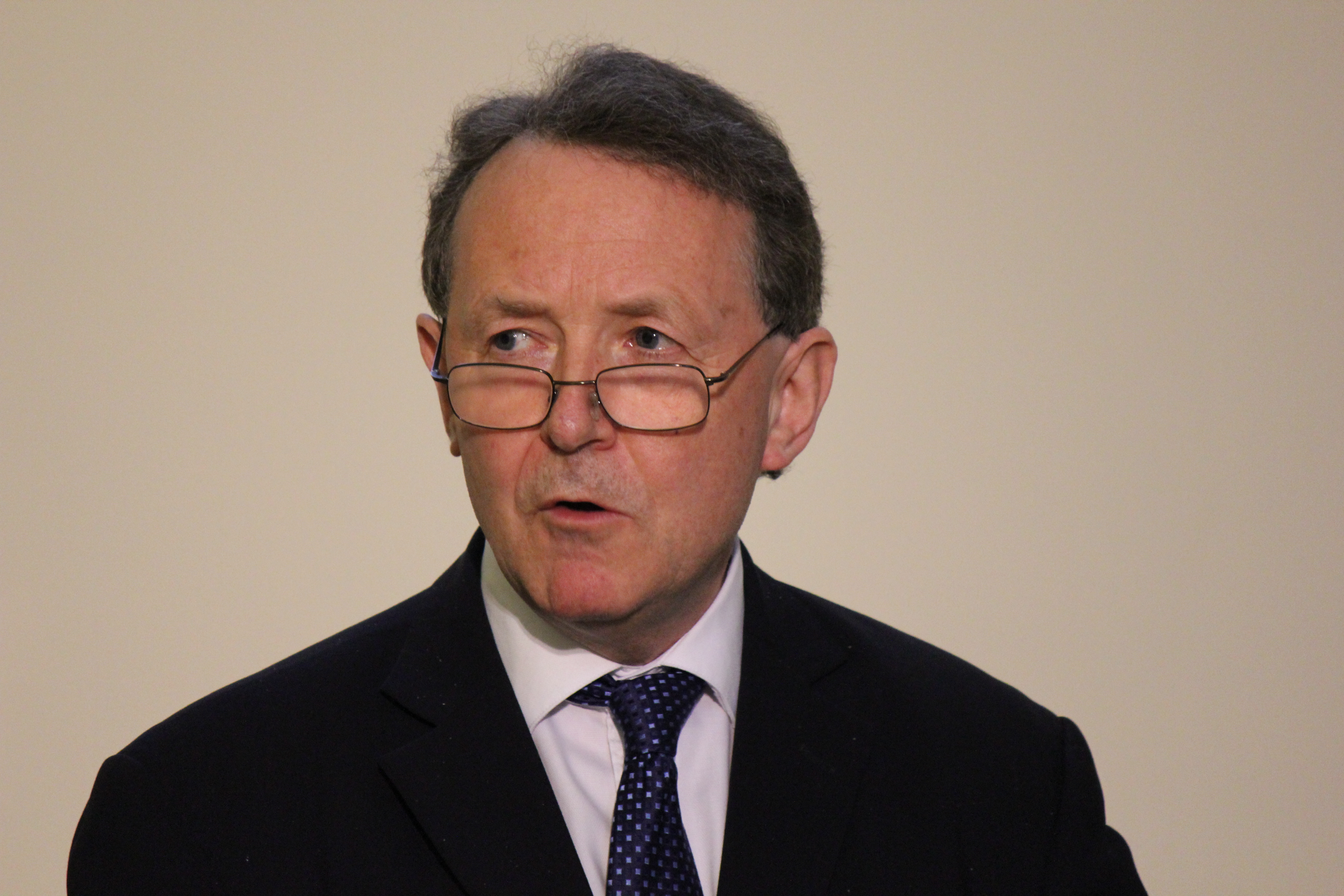
The Catholic Response to the Poverty Crisis (CSAN – Caritas Social Action Network – Conference)
Keynote speech, 12 June 2013
David Alton
As they step from the platform to the train at London’s Embankment, tube station passengers are frequently told to “mind the gap.” In a country where the gaps have been getting bigger, it’s advice which policy makers, campaigners, Government, charities, churches and civil society need to take to heart. The widening gap between the destitute and the very wealthy risks social cohesion as well as offending basic principles of justice, fairness and decency.
Jesus told us that the poor would always be with us but this was not offered as an excuse for indifference to the plight of the poor – rather, it was recognition of how people tend to behave towards one another. Instead of indifference the theology of the Beatitudes is an encouragement to reach out in practical ways while Scripture and Catholic Social Teaching are rooted in the principle that our faith must be matched by deeds. In every generation the objective must be to close the gap. There are consequences for society – and for the individuals who make up society when we fail to do this. But the enormity of the consequences when we fail to respond to the poor is graphically underlined when Jesus recounts the story of Lazarus and Dives, the rich man and the poor man, in which Jesus describes another gap, the yawning chasm which opens up between Lazarus and Dives, as the rich man is eternally damned for his failure to give even the crumbs from his table.
St.Augustine was emphatic that our response to human need must be marked by love.
“What does love look like? It has the hands to help others. It has the feet to hasten to the poor and needy. It has eyes to see misery and want. It has the ears to hear the sighs and sorrows of men. That is what love looks like.”
But do we have love?
“We may live in the world’s fifth richest country but because we fail to mind the gap most people have little or no experience of the wealth which that implies. Instead, too many people’s experience of the fifth richest country in the world is of Food Bank Britain, Sharp Elbowed Britain, Rip-Off Britain and Devil Take The Hindmost Britain. We have seen the emergence of a new class of people who are outside society: workless, broken, lost to ambition and social improvement and with no stake in society. When you ask the question “who owns Britain?” it’s not the people who have fallen through the gap.”
Government figures show that the gap between rich and poor in the UK – deep- seated and systemic differences – are wider now than 40 years ago.
Contrast unemployment at 2.5 million; child poverty at 3.6 million and rising; and the 5 million people paid less than the Living Wage with four stories from the last seven days:
It was reported that the Chief Executive of Network Rail is to receive a £99,082 bonus on top of his £577,000 salary; that the former boss of Tesco’s failed US chain, Fresh & Easy, received a £1.7m payoff despite the business being shut down after repeated losses; that BT chief executive Ian Livingston’s annual earnings rose to £8.5m, with 1,000 managers sharing windfall payouts averaging £120,000; while four top bankers at the bailed out Royal Bank of Scotland were handed £2.7m in shares from bonuses – valued at around £1 million, £670,000, £650,000 and £480,000
While Barclays Bank announced three month profits of £1.3 billion – an increase of 5%,the gap with those in debt gets ever wider: household debt now stands at an average of £57,635 and total UK personal debt has reached a staggering £1,452 billion.
More broadly, as efforts to stimulate the economy push up house prices and asset values, the well-off are rewarded for being well off, whilst the poorest are cut further adrift. The gap between those who have so much and those who don’t hardly creates a sense that “we’re all in this together” as David Cameron once put it. The top 10% of the population are worth more than three quarters of a million pounds while the bottom 1% have negative wealth – in other words their liabilities exceed assets –of £3,840.
So, we need to mind the gap but, have a care, before assuming that market economies are themselves the problem.
The economist, Ludwig von Mises was right when he insisted that in the history of mankind the free market removed more people from absolute poverty than any other system devised by men. Command economies – so beloved of the former European Socialist dictatorships – did not, and will not, end the glaring anomalies between rich and poor. The issue for us is how to temper the market’s excesses; how to end the irresponsible obscenities of greed and avarice; how to promote moral capitalism and to cultivate more human values which promote social solidarity and the common good; and which use the market to champion fairness and justice; to close the yawning gaps. Fairness and justice will be what the next general Election will be about and the Church must speak clearly into that debate.
And we have been here before.
In the 1940s three men – the economist, John Maynard Keynes, the social reformer, William Beveridge and the Archbishop of Canterbury, William Temple, all warned against the dangers of running an economy which ignored the poor or unthinkingly widened the gap.
Keynes admonished the men of the City of London:
“No society can surely be flourishing and happy, of which the far greater part of the members are poor and miserable.” He added:
“I would like to warn the gentlemen of the City and High Finance that if they do not listen in time to the voice of reason their days may be numbered. I speak to this great city as Jonah spoke to Nineveh…. I prophesy that unless they embrace wisdom in good time, the system upon which they live will work so very ill that they will be overwhelmed by irresistible things which they will hate much more than the mild and limited remedies offered them now…”
Beveridge famously identified the five “giant evils” which he told the Government had to be conquered: “squalor, ignorance, want, idleness and disease.” Ignoring these social ills would lead, he said, to social breakdown and personal misery.
It was Beveridge’s friend, William Temple, who pointed to the prophetic role of the Christian community:
“The Church must announce Christian principles and point out where the existing social order at any time is in conflict with them. It must then pass on to Christian citizens…the task of re-shaping the existing order in closer conformity to the principles.”
The Catholic economist, E.F.Schumacher author of “Small is Beautiful – a study of economics as if people mattered.” rightly argued that “An attitude to life which seeks fulfillment in the single-minded pursuit of wealth – in short, materialism – does not fit into this world, because it contains within itself no limiting principle”, while John Ruskin once rightly declared that “Above all, a nation cannot last as a money making mob.
In speaking prophetically the Church should beware of appearing simply anti-capitalist or anti-market. The “social market” – moral capitalism – still remains our best hope but it needs inspired and ethical leadership and needs to be rooted in personal values which do not feed on greed, selfishness and the survival of the fiercest; and which seek justice and fairness for the poorest. When we lose sight of that basic truth, the gaps in society widen into chasms. In gathering at this conference today, all of us would do well to tread carefully and to “mind the gap.”
Let me now address three questions:
What is the poverty crisis?
What has been the political response? and
What should be the Catholic response?
What is the poverty crisis?
2.5 million people are now without work, 7.8% of the population – with unemployment at over 10% in some constituencies – put another way, that’s 1 in 12 of the population without jobs.
The yawning gap between those with jobs and those without creates a whole range of other differentials: gaps in personal income, gaps in self esteem and gaps in social acceptance.
Having or not having a job leads to a gap between a person’s innate abilities and their opportunity to fulfill that potential. Being unemployed means having nothing to do which too easily can lead to having nothing to do with the rest of us – opening a gap into which, as the old saw has it, the devil can make mischief for idle hands.
Being unemployed is personally disfiguring, often deeply depressing, and represents a terrible waste of human capital.
This widening employment gap in Britain is particularly disadvantageous
to young people.
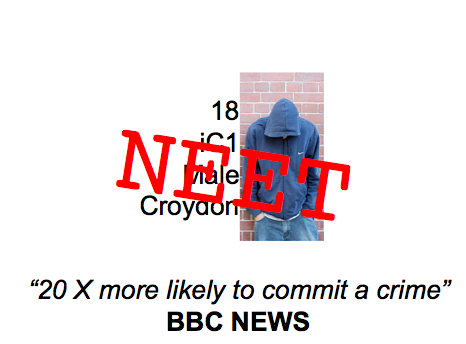
Being Unemployed Means Having Nothing To Do – and that can mean having nothing to do with the rest of us
1 in 3 of those without work is aged between 16 and 24. Nearly one million young people are out of work. The inelegant acronym NEET describes the hundreds of thousands of young people who are not in employment, education or training. Half of our 16 year olds lack basic qualifications in maths or English and as they are left brooding on sink estates and in urban ghettos many turn to lives of crime and are sucked into drugs and gang culture. The devil is free to have a field day.
Even where some kind of employment is available, the poorest people are almost invariably restricted to the most badly remunerated and demeaning roles. Once again this is particularly pronounced amongst younger people: at the time of the last Mayoral election some 50% of Londoners aged 16-25 were earning below the Living Wage recognised as essential for meeting their basic needs.
Tennyson understood the danger of allowing young people to fester without apparent prospects or hope: “What shall I be at 50 should nature keep me alive, if I find the world so bitter when I am but 25?”
Disillusionment is of course only exacerbated by an incessant societal focus on consumerism and material wealth, often to the detriment of what really matters for human flourishing; yet it is often the most basic and fundamental hardship which causes people to become bitter:
Last year, after losing their homes, there was a 44% rise in the number of families relying on emergency bed and breakfast accommodation, bringing the total to almost 4,000 people.
But even this provision is better than being forced to sleep on the street or on a park bench – the fate of some of those who had found shelter in a night shelter in Salford which has been forced to close because of changes in the housing benefit regime. I tabled questions in parliament about this last week.
The poverty crisis manifests itself in countless other ways:
Research released last month suggests that 500,000 people are now reliant upon food banks or some other form of voluntary provision for their meals. This spectre of Food Bank Britain is a national disgrace. It represents not only a catastrophic human cost but also stands to create profoundly negative economic and social effects in the long run.
Considering the numerous studies linking unmanageable debt to crime, family breakdown, alcohol abuse and mental health difficulties, there are clear dangers stemming from the fact that more than one million people now rely upon payday loans to cover essential outgoings such as utility bills. Similarly, the hundreds of thousands of children growing up in overcrowded homes or going to school hungry face significantly increased risks of education and health problems, presenting obvious challenges further down the line.
The Times Educational Supplement has highlighted the growing problem of child malnutrition following a report showing half the country’s teachers have witnessed pupils suffering malnutrition or hunger pangs.
In a survey for the Prince’s Trust a quarter of 515 teachers from across England said that pupils’ hunger is a problem, and that it was becoming an increasingly common sight. It also found seven out of 10 secondary school teachers were “increasingly worried” their pupils will end up on benefits after quitting full-time education.
Teachers said they were also witnessing increasing numbers of pupils coming into school “hungry”, “dirty” and “struggling to concentrate”.
More than one in four teachers said they regularly saw children walking miles to school as they cannot afford transport. A further two-thirds claim they often saw pupils with holes in their shoes. One teacher told how she saw a pupil walking to school in the snow wearing just her socks because her shoes no longer fitted her.
Beyond the visible signs of poverty – such as hunger or homelessness – or traditional perceptions – such as evictions or foodbanks – are other serious forms of poverty such as children unable to fully participate in trips or friendship groups; working parents facing relationship strain as a result of low incomes; young people sofa surfing; and disabled people unable to afford necessary transport. Relative poverty is crucial because it defines whether people can partake in society, but relative poverty is often unseen.
As Dietrich Bonheoffer once remarked: “The test of the morality of a society is what it does for its children.”
Yet children are under particular pressure: not only are children coming to school hungry; 1.2 million children in poverty do not receive free schools meals; and 1 in 12 renting parents have borrowed from their children to cover rent or bills.
The Government needs to ask itself how its policies should be judged when measured against that yardstick.
It needs to become far more focused on the root causes of social security and tax credit demand and their priority should be to make progress on full employment, living wages, affordable housing and support for children and people with disabilities.
It is hardly surprising that so many organisations working to support poor families have expressed deep concern at the virtually unprecedented set of restrictions on the welfare system, which threatens to punch further holes into Beveridge’s “safety net”.
The chief executive of The Cardinal Hume Centre, which provides a vital lifeline to Londoners in poverty, puts it well: “Breaking the link between inflation and benefits before the effects of these changes”—to the welfare system— “have even been assessed, is a potentially disastrous move that could cause unsustainable hardship for many people who are already struggling to get by”.
It is sometimes difficult to work out whether some of those who have voted for these draconian measures have done so as a calculated act or have simply slept walked through the lobbies. Let me give an example.
Changes in housing benefit recently led to a court judgement in the case of OR v the Secretary of State for Work and Pensions and the Isle of Anglesey in which it was decided that shelters for homeless people will not qualify as dwellings – thus preventing the claiming of housing benefit. In Salford this has led to the Narrowgate Night Shelter, closing its doors to around 28 homeless people this month and only being allowed to reopen for three nights a week thanks to a large donation from a member of the public. This is a shelter established by Christians, which has helped more than 2,000 people, and is the only emergency night shelter in Manchester or Salford. I raised its closure during Question Time in the House of Lords yesterday, and the exchange is in Hansard (pasted at the foot of this speech).
Before changing the housing benefit rules did anyone give any serious thought to the consequences of the changes? Did they consult with organisations working with homeless people in advance of the changes? Do they have any notion of the role which night shelters play in helping their users secure permanent accommodation? Do they think that a bench in the park or a shop doorway is preferable to a night shelter? Do they care?
These are the some of the realities of the poverty crisis.
We should all want to break the dependency cycle – but we should ask ourselves whether this is the way to do it.
Before the 1980s very few people were on benefits. Working class families, like the one I came from, saw them as the Beveridge safety net. The 1980s and mass de-industrialisation changed all that, turning the working classes into workless classes and, all too often, into benefit-dependent classes—which is why, with nearly 1 million young people without work, opportunities for education, employment or training, job creation and education are crucial in tackling poverty.
In conversation with John Bird, the founder of Big Issue, he was quite emphatic that a dependency culture has not helped the poor, but quite the reverse. Mr Bird suggested that 450,000 families are on long-term benefits and that only half of 1% of those on long-term benefits goes to university or into higher education. If that is so, what can we do about it?
I am sure it won’t be by the overloading of students – especially those from poorer backgrounds – with phenomenal debts. These are a major disincentive for poorer families, kicking aside the ladder of educational advancement, with all the concomitant effects that has on social mobility, which is why I voted against them.
Having been the first from my own family to experience higher education and, as the son of an Irish immigrant, my late mother, whose first language was Irish, and having grown up in a home without a bathroom, and then a council flat—and then, as a student, being elected to represent a disadvantaged community in the heart of Liverpool, where half the homes had no inside sanitation or bathrooms—I know how important it is to provide educational and vocational opportunities that give opportunities for employment.
There is another change which I have seen in the terraced streets and council estates – but also in the middle class neighbourhoods – all of which I have represented. This, too, is a major form of impoverishment – and it is the breakdown of the family and particularly the disappearance of fathers from the lives of their children.
We’ve heard a lot about marriage recently. It’s just a pity Parliament and the Government haven’t spent as much time and energy considering why 50% of children will have seen their parents’ marriages collapse and their parents divorce by the time they are 16 – and considered the consequences of this for the well being, stability and future of those children.
Some 800,000 children now have no contact with their father. 1 in 3 children live without their father; 3.8 Million children are fatherless in the UK. In London, Liverpool, Manchester, Birmingham and Leeds, over 50% of children live in fatherless families.
Children in these situations:
- Are less likely to attain qualifications
- Are more likely to experience unemployment
- Are more likely to have low incomes
- Are more likely be on income support
- Are more likely to experience homelessness
- Are more likely to be caught offending and go to jail
- Are more likely to suffer from long term emotional and psychological problems
- Are more likely to develop health problems
- Are more likely to divorce or dissolve their cohabiting unions
- Are more likely to have children outside marriage or outside any partnership
Having abandoned their children many men leave women to cope with enormous challenges. Lone mothers are twice as likely as two-parent families to live in poverty. The cost to society is economic as well as social.
According to the Marriage Foundation, £44 billion is the cost of family breakdown every year; and there is a link between breakdown and anti-social behaviour.
The National Audit Office say that the cost of young offending is over £11 billion every year and that Britain has the highest rate of young offending in Western Europe.
This is surely a symptom of a fatherless society and a faithless society. Other manifestations include Britain having the highest level of self-harming among young people in Europe and every day there are reports of good young people, many from poorer backgrounds, who have drifted into gangs and drug culture.
How will we break the cycles of poverty and dependency which lead, for instance, to more children being locked up in British jails than any other European county, without honestly addressing these fundamental questions?
What has been the political response?
Too often politicians have turned the poor into scapegoats rather than trying to understand and combat the causes of poverty. It is the politics of the playground to paint a picture of scroungers versus strivers. Rather than caricatures, we need to ask how it can be right to promote policies that will lead this year to a couple with two children earning £26,000 a year losing more than £12 a week while 8,000 millionaires will be better off by an average of £2,000 a week. It is neither fair nor just, or equality of sacrifice or an equitable sharing of austerity, that, according to the Institute for Fiscal Studies, that some 7 million working families will be on average £165 a year poorer, while another 2.5 million families with no one in work will be £215 worse off as a result of Government policies. The rhetoric claims that “we’re all in this together” the reality suggests an altogether different picture.
The overall impact on vulnerable people of many of the changes is devastating: too deep and too fast; ill considered and in danger of undermining the most fundamental safety net through which no one should fall. It is unacceptable that through job loss, disability, illness or low pay, parents and children are going hungry and becoming homeless. But the facts speak for themselves and that is the reality for a rapidly growing number. With food banks and shelters increasingly overburdened, it is now urgent that we repair the damage being caused to families and to our society.
Although the motives of some of those who are driving these policies might be worthy, and genuine issues such as work paying less than welfare needed to be addressed, this should not be confused with austerity measures that have been too deep, too fast and too arbitrary. The cumulative result of benefit cuts, unfair penalties, and the abolition of critical funding such as civil legal aid and crisis loans, has been an unprecedented reduction in the social security safety net. This has left families unable to meet the basic needs recognised in Catholic Social Teaching. At the same time, rhetoric underpinning these changes has created a vicious cycle of scapegoating and penalising those most in need of support. Debate around migration, and, for instance, media coverage of the Philpot trial, set the stage for some of the worst manifestations of this, whilst research by major charities and the Joint Committee on Human Rights reflects gradually increasing levels of intolerance in society.
What should be the Catholic response?
The Catholic response to the poverty crisis has been thoughtful and focused. There are wealth of teaching documents which form Catholic Social teaching – often referred to as the Church’s best kept secret. Based on Jesus’ injunction to always place “the least of these” at the centre of our concerns, Catholics affirm human life, human rights and human dignity. Human life begins at conception and ends at natural death; human rights are based on the belief that each person, regardless of difference, is made in the image of God and of infinite worth; and insistence on human dignity requires that people will not be down trodden or oppressed.
Pope Benedict Emeritus in Charity in Truth (Caritas in Veritate) puts it like this:
“If we love others with charity, then first of all we are just towards them. Not only is justice not extraneous to charity, not only is it not an alternative or parallel path to charity: justice is inseparable from charity, and intrinsic to it. Justice is the primary way of charity.”
He adds that:
“To desire the common good and strive towards it is a requirement of justice and charity…. The more we strive to secure a common good corresponding to the real needs of our neighbours, the more effectively we love them. Every Christian is called to practise this charity, in a manner corresponding to his vocation and according to the degree of influence he wields in the [state].
Commenting on the link between unemployment and poverty he says:
“…unemployment today provokes new forms of economic marginalization, and the current crisis can only make this situation worse. Being out of work or dependent on public or private assistance for a prolonged period under-mines the freedom and creativity of the person and his family and social relationships, causing great psychological and spiritual suffering…. the primary capital to be safeguarded and valued is man, the human person in his or her integrity: ‘Man is the source, the focus and the aim of all economic and social life’”
In his first encyclical, God Is Love (Deus Caritas Est), Benedict says that “Love needs to be organized if it is to be an ordered service to the community.”
And in responding to poverty in this country the Catholic Church does precisely that:
Stories abound of the great work that the Catholic charities represented here today undertake: providing help where it is otherwise unavailable; turning people’s lives around; covering every area from poor children to ex-offenders. Rights, justice and the Common Good are at the heart of the daily support provided to society’s most vulnerable people. Catholic Social Teaching has also been manifested in a strong Church voice – through public advocacy; through the bishops; and through the work of CSAN. Because you are at the cutting edge what you have to say is rooted in day to day practical experience. It’s though that direct work that stories like that of Lucy are heard by policy makers and parliamentarians:
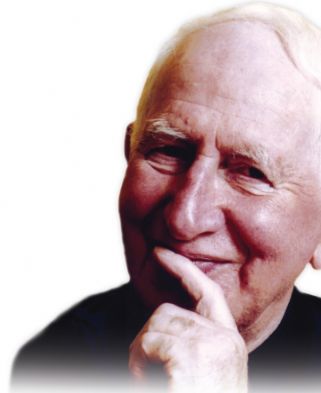
- Lucy Shafe’s Story
Lucy Shafe, 28, first came to the Cardinal Hume Centre almost four years ago. She was living in a dingy homeless hostel. She is now in her second year at University, studying Youth Work and is doing a work placement at the Centre’s Hostel as part of her course. Before coming to the Centre, Lucy had no job, and was sleeping on friends’ sofas. As time went on, she felt like she had outstayed her welcome, and eventually found a room at a homeless hostel near to the Centre.
“It was a horrible place to live, there was no support really. I’d build a relationship with a keyworker, and then after a few months they’d say ‘sorry I’m leaving for a new job’ and I’d be on my own for a while. At that time I felt really lonely and lost.” Lucy heard about the Centre from one of the other residents at her hostel. “Life was hard, I knew I needed help, so decided to be brave and come to the Centre. I was surprised, everyone was so kind. I felt like I could trust these people, and for the first time in years, I didn’t feel so alone.”
The Gateway referred Lucy to the Centre’s Jobs Team, who were amazed by her resolve and dedication. Despite what she was going through, Lucy had already enrolled at her local college to do a counselling course.
As Richard Breedt, one of the Centre’s Employment Officers says, “Her tenacity and drive really showed what she was capable of. I was certain that she would make a success of herself”. Lucy was determined to support herself financially, and with Richard’s help, she managed to get a cleaning job in the evening to fund her studies.
As Lucy says, “Having work gave me security. I like earning and being independent”. Her living conditions were still poor, but now that she had a job the Centre’s Housing Team could work with Lucy to help her to find a better place to live: ” It’s the only down-side of the Centre – I wished their hostel took in people older than 21! It would have been much easier if I had been able to live here instead of the other hostel. I was so relieved when they helped me to move out from that horrible place – I am now sharing a rented house, and I can’t tell you how much happier I am!”
With her new-found security, Lucy was ready to take on her dream of going to University, but sadly this wasn’t the end of the story. Lucy really struggled with the work. “I was struggling with the coursework. English was never my strong point. I wanted someone to talk things through with, but there wasn’t anyone I could ask. But, the Centre had a great idea, and set me up with my mentor, Rachel. She helped me to become much more confident. Just having someone to listen really helped”.
Lucy is now in her second year at University and is doing really well. As part of her course, she has to do a work placement, and we were absolutely delighted when she contacted the Centre and asked if we had a student position in our hostel. She is now a real asset to the Housing Team, and it’s clear her chosen career is her vocation: “I want to work with young people, to be a counsellor. I want to be there for people when times are hard for them. So, I am studying youth work, and plan to combine it with the counselling course I did at college. I want to help people, like the Centre helped me”.
Catholic Social Teaching is not just about theory; it’s about practice. It’s about giving a voice and giving hope to people like Lucy.
It’s about people like sixteen year old Kelsey, who had become used to thinking that she could never achieve anything, and that no one could help her, until Depaul UK got behind her; or 17-year-old Joe, who was referred to Depaul, after he had failed to serve his 150 hours of community service and had just broken his parole and had never met his parole officer. Joe is now re-organising his life and benefiting from the support of the Statham House Team, a Depaul hostel that specialises in working with young people with high support needs. Or the Nugent Care Society (Liverpool) client who had alcohol addiction, was causing anti social problems and with a rent account £1000 in arrears was receiving debt letters/ bailiff and court letters on a daily basis.
He was accepted onto the programme and since then he has not looked back – his improvement/progress is substantial.
Nugent Care takes its name, of course, from Canon James Nugent, who in the nineteenth century worked for over fifty years to rescue children from the streets of Liverpool, founding many institutions for their care. This underlines the unbroken nature of Catholic concern for the poor and vulnerable, answering the challenge laid down by St. Augustine when he asked: “what does love look like? It has the hands to help others. It has the feet to hasten to the poor and needy. It has eyes to see misery and want. It has the ears to hear the sighs and sorrows of men. That is what love looks like”
So, let me conclude.
The purpose of this conference and the objective of the next 48 hours is primarily to reaffirm the beliefs and the practice of Catholic Social Teaching. This conference gives the opportunity to share skills, make connections, inspire one another and to strengthen the Church’s collective contribution to the fight against poverty.
It also gives us the chance to challenge ourselves. The Church’s response to the growing poverty crisis has been criticised or questioned from some inside the Church and some outside; the Chancellor, George Osborne has accused those lobbying against welfare cuts of talking “ill informed rubbish”; some Catholic commentators have called for the Church to specify what should be cut as well as what should be protected; some say the Church is doing too little; others think it’s saying too much. It is imperative that we address these challenges and consistently scrutinise our own response.
Above all I hope that this Conference will send out a message to decision makers and to society at large that tackling poverty is at the heart of the Church’s mission.
Pope Francis I has called on us to be a Church for the poor;
In the past he has said that “unjust economic structures that give rise to great inequalities” are violations of human rights and that social debt is “immoral, unjust and illegitimate.”
“Unfortunately,” he noted, it seems that those same countries “opt for exacerbating inequalities even more.”
He said that the challenge to eradicate poverty could not be truthfully met as long as the poor continue to be dependents of the State. The government and other organizations should instead work to create the social conditions that will promote and protect the rights of the poor and enable them to be the builders of their own future.
As Cardinal Archbishop of Buenos Aires he is recorded explaining to children the Gospel and its call to serve the poor.
During his homily, he encouraged children to “seek after Jesus” and to find Him by “opening your hearts,” participating in the Sacrament of Holy Communion and seeing Him in those in need.
“Who told us that we can find Jesus in those most in need?” the cardinal asked. “Mother Teresa,” the children shouted in response.
“And what did Mother Teresa have in her arms? A crucifix? No. A child in need. So, we can find Jesus in each person who is in need,” he said.
It was, of course Mother Teresa, who famously said that she would not pick up a leper from the streets for a million dollars but she would do it for the love of Jesus and, echoing St.Francis, she said that we should use words but only when we have run out of deeds.
So, as we reflect on the widening gaps in British society; and consider questions of fairness, justice and the common good; and as we take to heart Pope Francis’ urgent call to be a Church for the poor, this gathering of charities from Liverpool to London, of Bishops, clergy and laity, of MPs and Peers, of Catholics and friends, has the chance, and should leave no one in any doubt, that in our nation we are answering that call with energy, commitment and determination, and will go on doing so.
www.csan.org.uk
www.davidalton.net
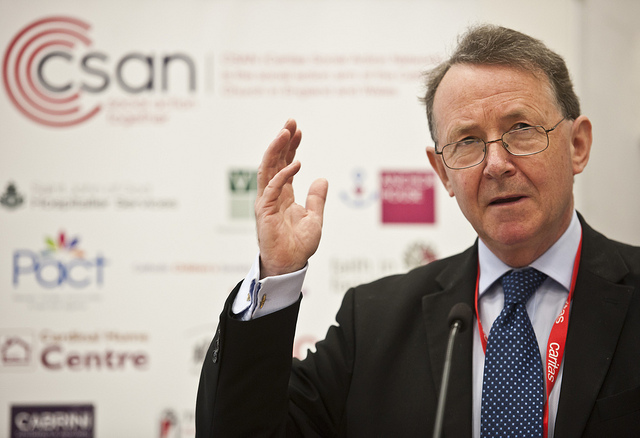
———————————————————————————–
Homeless People: Night Shelters
Question: House of Lords June 11th 2013
3.01 pm
Asked by Lord Alton of Liverpool
To ask Her Majesty’s Government what provision they are making for homeless people left without access to night shelter provision following the Anglesey judgement on housing benefit and the funding of night shelters.
The Parliamentary Under-Secretary of State, Department for Work and Pensions (Lord Freud): My Lords, local authorities are best placed to make local provision for homeless people and have been allocated £470 million from 2011-12 until 2014-15 to prevent homelessness and tackle rough sleeping.
Lord Alton of Liverpool: My Lords, if there were no material changes in the Government’s regulations concerning night shelters, why are homeless people who were in shelters now on the streets? In the light of the Anglesey judgment is there not an urgent need for the Minister to issue new guidance to close a revolving door which has sent vulnerable people, many of whose lives were, in any event, in freefall, back on to the streets, sleeping rough on park benches or in shop doorways or seeking hospital beds, and which in Salford precipitated the closure of Narrowgate, the only night shelter serving Manchester and Salford, which has, in the past, helped more than 2,000 people? To protect the homeless, do we not need to rapidly hammer out a humane and just solution, with new guidelines issued to local authorities and to charities working with the homeless?
Lord Freud: My Lords, clearly homelessness is a priority of this Government and we are putting a lot of resource into prevention. The most important area in which we are doing that is the No Second Night Out policy, which is proving very successful and is being run out across the country this year. This is an isolated example of how particular shelters are funded.
11 June 2013 : Column 1515
Lord Roberts of Llandudno: My Lords, how much consultation was there before this judgment was put into effect? Following the point of the noble Lord, Lord Alton, who has done tremendous work in this area, is it not time that we issued clear, simple guidelines? Will the Minister write to every local authority explaining that not only have benefits been paid in the past but, in spite of the judgment, they can be paid now and that no one need lose their place in a night shelter?
Lord Freud: My Lords, the actual finding was that a particular night shelter in Anglesey could not be treated as a dwelling because it was, basically, a converted hall. There was no reserving and the people there came on a first come, first-served basis every night. It was a particular finding which might apply to a few other places. However, that is about how local areas find the best possible funding for their support for homeless people.
Baroness Armstrong of Hill Top: My Lords, I declare my interests stated in the register. I know that the Minister understands that many homeless organisations are trying to move as many people as possible from hostel accommodation in to independent living. However, does he realise that that is now being put at threat because of the changes to the benefits system and, of course, the bedroom tax? In Newcastle, the local housing company has had to warn the Cyrenians, which is the biggest supplier, if you like, of work with the homeless, that it is coming to the stage where it will not be able to allocate any properties to the homeless because it will have to use them for people being transferred within their own estate.
Lord Freud: My Lords, that is clearly a very wide question and I find it hard to answer the specific point. On the point about hostels for the homeless, our best estimate is that there are about 9,000 bedrooms for people who are rough sleepers. A proportion of those may be affected by this particular provision. Authorities need to look at the other sources of funding, including the Supporting People programme, which received £6.5 billion in this spending review.
Lord Brooke of Sutton Mandeville: My Lords, can my noble friend remind your Lordships’ House how many spare bedrooms there are in the social housing sector and how many families live in overcrowded accommodation?
Lord Freud: My Lords, there are approximately a quarter of a million people living in overcrowded accommodation and 1 million spare bedrooms in homes lived in by people who receive benefits in the social rented sector.
Lord Avebury: My Lords, the noble Lord said that this was an isolated incident, but is he aware that local authorities are already cutting off housing benefit and that shelters are closing down? When will Homeless Link and Crisis have a reply to the representations that they made to DWP asking for an urgent clarification of this ruling?
11 Jun 2013 : Column 1516
Lord Freud: My Lords, this is a very particular ruling on what is a dwelling for which housing benefit is payable. Clearly, there are other ways to provide support for night shelters where they are not dwellings. As I said, that is in the Supporting People programme and in the homelessness prevention budget, which are the two large budgets. There may be a small number of the 9,000 or so bedroom spaces where one has to look carefully at what is the appropriate funding, but a large amount of effort is going into supporting rough sleepers and to make that provision. If the effect of this is to upgrade the provision of beds for those who are sleeping rough, that might be a rather good outcome.
Lord McKenzie of Luton: My Lords, the Minister said that homelessness was a priority for the Government. It is interesting to note that, after years of declining trends, 2010 marked the turning point when all forms of homelessness began to rise. Does the Minister accept that for many, a period of stay in a shelter is the first step to being able to obtain and keep a home? It is an environment where they can begin the transition from a chaotic lifestyle to something more stable. In those circumstances, why does not the Minister take up the suggestions that noble Lords have made to look specifically at statutory guidance or a tweak in the regulations so that the types of provision caught by this ruling are put back in the position where people assumed that they were before the judgment was made?
Lord Freud: My Lords, I emphasise that there is absolutely no change here in what is the kind of home for which housing benefit is appropriate. Where that is, in the case of Anglesey, a hall where the showers for those people are half a mile away, it may be that other forms of support, such as the Supporting People programme or homelessness prevention are more appropriate. The No Second Night Out programme, which is now being introduced throughout the country is beginning to make some impressive moves to make sure that people in the state of rough sleeping are caught early and got back on to the path, as the noble Lord said, out of a chaotic lifestyle into something where they can get themselves organised.


